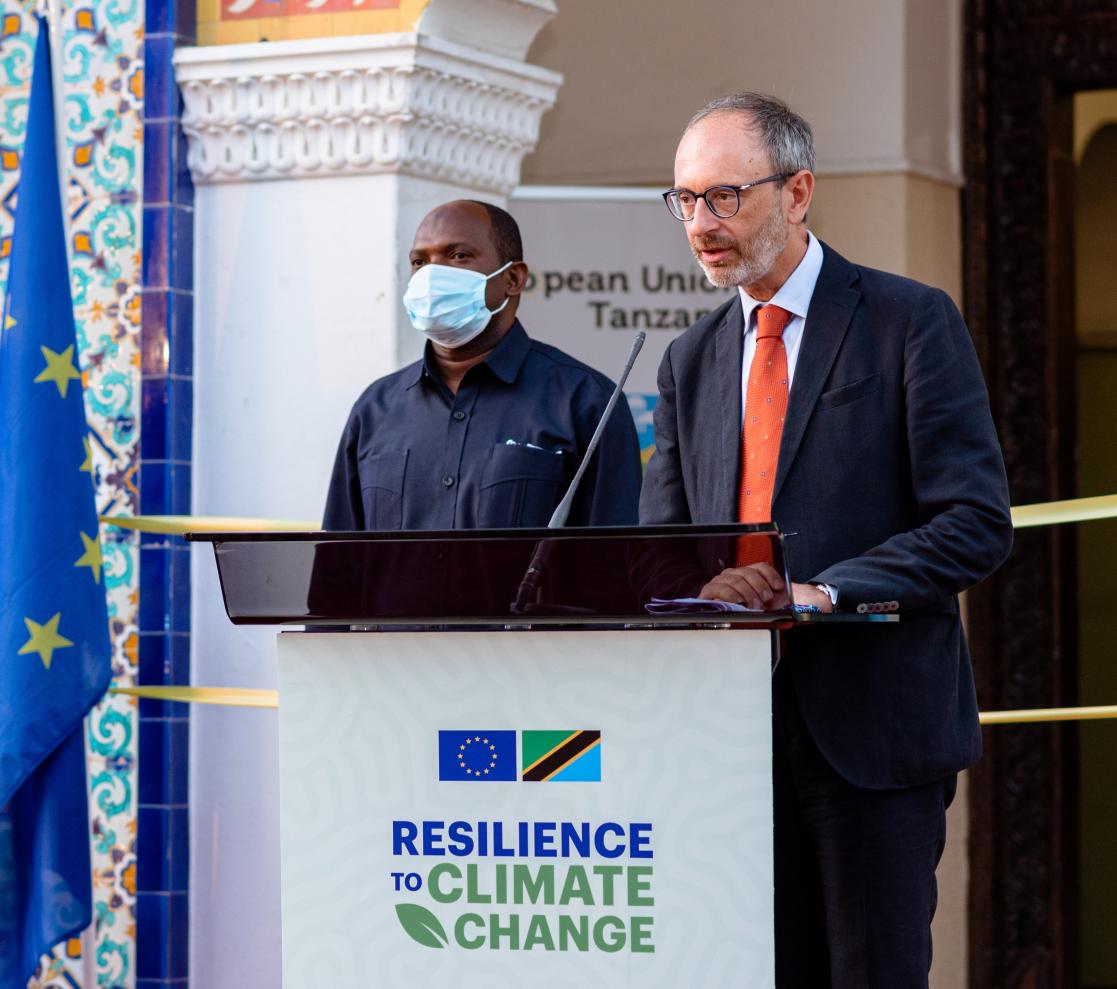EU LAUNCHES GREEN DEAL CLIMATE CHANGE CAMPAIGN "RESILIENCE TO CLIMATE CHANGE"
On 18 May, the Head of Delegation of the European Union (EU) to the United Republic of Tanzania and the East African Community, H.E. Ambassador Manfredo Fanti, together with Hon Hamad Hassan Chande, Deputy Minister, Vice President’s Office (Union and Environment) inaugurated an exhibition devoted to combatting climate change and its impacts and marking the start of a campaign, "Resilience to Climate Change". The event was hosted at the National Museum and House of Culture in Dar es Salaam.
In his welcoming remarks, EU Ambassador Manfredo Fanti said:
"The European Green Deal is a unique opportunity for Europe to step up its ambition and ensure that the EU can become climate neutral by 2050 and climate adaptation goes alongside mitigation in achieving this goal. Climate adaptation is a key element in achieving a more resilient and sustainable way of life on a global scale. We can see this in our projects in Tanzania, which show that communities are stepping up and becoming resilient to climate change. We are also proud to mark 45 years of cooperation with Tanzania. This is also a different way of commemorating 9th May, the Europe Day, the celebration of which will take place as soon as circumstances will allow.”
The event also provided an overview of support by the European Union to the natural resources sector with displays by implementing partners and an interactive exhibition using QR code technology with the theme ”Resilience to Climate Change”.
Tanzania is highly vulnerable to the impacts of climate change, with most of the rural population relying on rain-fed and hence climate sensitive agriculture. Strengthening resilience is crucial to ensuring sustainable socio-economic development and food and nutrition security. The EU promotes climate action through a wide range of initiatives, from policy and institutional development supporting Tanzania to develop its Nationally Determined Contributions, to community-based projects such as the eco-village concept. This includes promoting innovative approaches in agriculture, livestock, water, energy and natural resource management in selected villages, such as agroforestry, rainwater harvesting, and fuel-efficient cooking stoves. The EU is further working on decentralised and community-based natural resource management for wildlife, forest and marine ecosystems. Support has been provided to the development of two Wildlife Management Areas in Western Serengeti and two in Kilombero and Lower Rufiji wetlands, participatory forest management in Kilimanjaro, Manyara and Morogoro regions and fisheries co-management in the coastal belt from Dar es Salaam to Mtwara.

